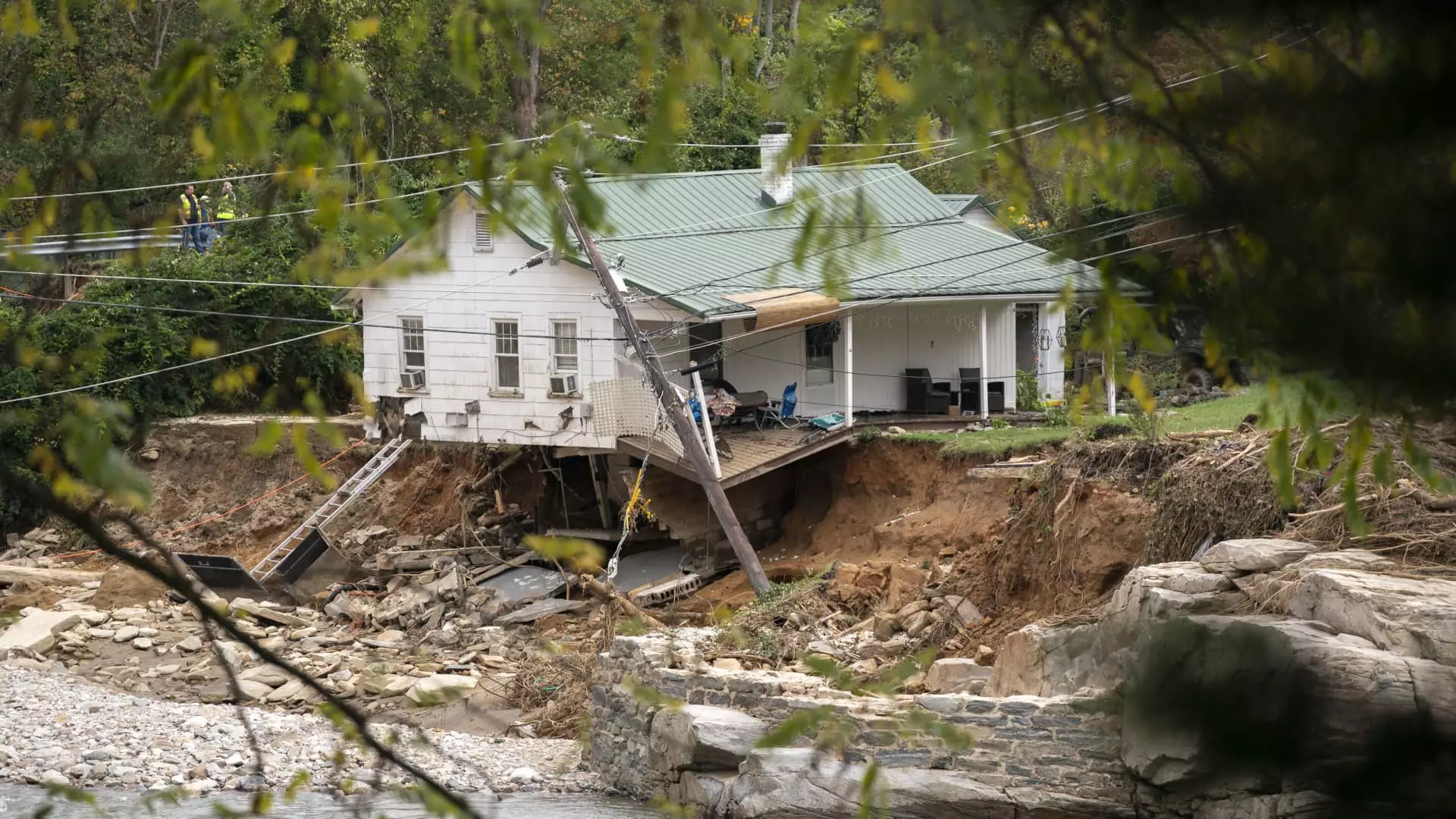The aftermath of Hurricane Helene has underscored the critical importance of understanding climate risks in real estate investments. With insured losses now estimated at over $6 billion, the financial burden extends far beyond that figure when uninsured losses are considered. A major part of this dilemma is the overwhelming number of homeowners, particularly in North Carolina, who find themselves insufficiently covered due to lack of flood insurance. This has become a pressing issue, especially since many homes in the region do not lie within federally designated flood zones, leaving homeowners unaware of their vulnerabilities.
Most property owners in North Carolina tend to believe that their homes are shielded from flooding risks because they are not located in zones identified by the Federal Emergency Management Agency (FEMA). The grim reality is starkly different; only 4% of homes are positioned within FEMA flood zones. However, recent studies by climate risk firm First Street reveal that nearly 12% of homes in the state actually face flood risks when considering climate change implications. This disparity between perception and reality highlights the inadequacies of existing flood zone maps and risk assessments, which haven’t fully adapted to the evolving climate landscape.
Enter First Street’s innovative approach, which leverages next-generation risk assessment technology to provide property-specific climate risk scores. Their recent partnership with Zillow, where climate risk data is incorporated into every for-sale property listing, has the potential to revolutionize decision-making for both buyers and sellers. As Skylar Olsen from Zillow articulates, climate concerns are now increasingly shaping home buying behaviors. By offering detailed assessments of risks related to flooding, wildfires, and extreme heat, this tool empowers consumers to make informed decisions about their real estate purchases, taking into account long-term affordability and the necessity of proper insurance.
As climate risks manifest more visibly, the very calculations of homeownership are set to change dramatically. Each property listing now showcases risk scores for flooding, wildfires, and other climate-related concerns, not just in the present but also projected for the next 15 to 30 years. This foresight is crucial as it alerts potential buyers to risks that could escalate over time, reinforcing the need for proper coverage. As First Street’s chief science officer, Ed Kearns, pointed out, many believe themselves safe from floods if outside FEMA-designated zones. However, this misconception can lead to devastating financial consequences, especially as climate change sharpens the intensity of rainfall patterns across the country.
A recent survey indicates that more than 80% of potential homebuyers now factor climate risk into their purchase decisions. Flooding ranks highest among concerns, followed closely by fire risks. A notable trend uncovered by Zillow’s analysis shows a substantial increase in homes listed for sale nationwide that are classified as carrying significant climate risks, compared to five years ago. With statistics showing that 16.7% of new listings are at major wildfire risk and 12.8% at major flooding risk, it’s evident that prospective buyers cannot afford to overlook these pressing issues.
With the integration of climate risk scores into real estate listings, the implications for home values are profound. As insurance costs rise in tandem with the increasing necessity for coverage, property values in the most susceptible areas are likely to decline. Kearns emphasizes that the direct effect of quantifying risk through scores may lead to fluctuations in real estate valuations, as buyers start to navigate their decisions based on affordability and insurance requirements. The potential decrease in home values could reshape entire communities and market dynamics.
Navigating the complexities of home buying in today’s climate-driven world necessitates informed decision-making. As Hurricane Helene’s aftermath illustrates, the financial stakes are high, and the need for comprehensive risk assessment has never been more urgent. Tools that provide climate risk scores are not merely technological advancements; they are essential instruments that can transform the real estate landscape, offering consumers the knowledge they need to make sound investment choices in an increasingly uncertain future.


Leave a Reply